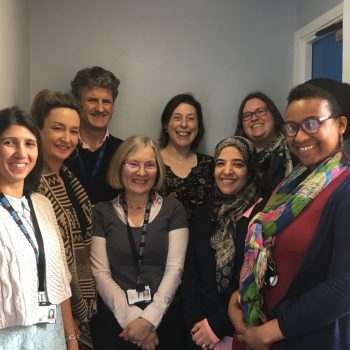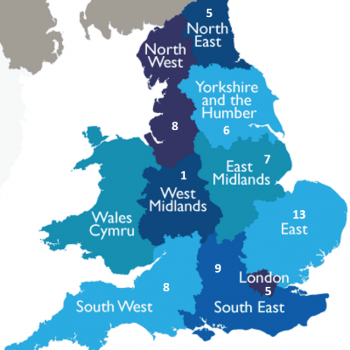NIHR IBD BioResource reaches milestone of 10,000 recruits
A platform for research into Crohn’s Disease and Ulcerative Colitis has now signed up 10,000 participants nationwide.
The National Institute for Health Research (NIHR) IBD BioResource was established in 2016 by the UK IBD Genetics Consortium and the NIHR BioResource, to build on knowledge from recent genetics advances and accelerate the development of new treatments in Crohn’s disease and Ulcerative Colitis. Participants who have signed up to the NIHR IBD BioResource can be accessed by any investigators in the UK with an ethically approved research project, hence dramatically speeding up such research projects.
Inflammatory Bowel Disease (IBD) is a term used to describe two conditions, Crohn’s disease and Ulcerative Colitis. These lifelong illnesses mostly affect young adults and flare at intervals, producing debilitating symptoms including cramping abdominal pains, anemia, weight loss and diarrhoea. They require on-going drug therapy, and many patients also require major surgery. The exact causes of Crohn’s disease and Ulcerative Colitis are unclear, but the last 10 years has seen major progress in understanding the genetic contribution to these conditions.

NIHR IBD BioResource team
In the UK, more than 300,000 people are affected by Crohn’s disease or Ulcerative Colitis, and despite major advances in characterising the genetic and some of the environmental factors that predispose, much work remains to be done to fully understand IBD and develop better treatments.
Since its launch two years ago, the NIHR IBD BioResource has been rolled out to recruit in 62 hospital sites across the country. Earlier this week it hit the major milestone of 10,000 participants.
Dr Miles Parkes, a consultant gastroenterologist at Cambridge University Hospital and lead for NIHR IBD BioResource, said: “Getting to the 10,000 recruitment mark is a fantastic achievement and I am very grateful to all who have helped to make this possible.
“The IBD BioResource is a nationwide effort, recruiting people who have Crohn’s disease or Ulcerative Colitis specifically so that they can help researchers to better understand the causes of IBD and develop better treatments.”
People who sign up to the NIHR IBD BioResource provide a blood sample and complete a short health questionnaire. They will be contacted regarding future IBD research projects for which they meet inclusion criteria and given further information. They then decide study by study if they would like to participate or not. Participation could be to completing an online survey, provide a fresh blood sample or even participating in a trial of a new treatment.
Researchers from Cambridge, Edinburgh, London, Manchester and Oxford have already used the service to expedite their IBD research.
Dr Parkes added: “Since its launch we have been delighted by the level of enthusiasm shown by recruitment sites and patients alike, and particularly by the scale of interest from scientific community to use the NIHR IBD Bioresource. We are grateful for the continued support of our funding partners, clinicians and patients, without whom the success of the NIHR IBD BioResource would not be possible.
“Importantly our on-going large-scale recruitment of patients will allow us to fulfill our mission – to facilitate outstanding IBD research in the UK.” 
Helen Terry, Director of Research at Crohn’s and Colitis UK, said: “We are delighted to support this interactive BioResource which offers hope to thousands of patients suffering from Crohn’s Disease and Ulcerative Colitis (IBD).
“The 10,000 patients who have signed up are helping investigators to better understand and improve treatments for these debilitating, life-long illnesses. Access to this growing resource will enable researchers to translate the significant progress made in genetic research over the past few years into clinical benefit to improve the lives of people living with IBD and will open new doors to new discoveries.”
The NIHR IBD BioResource aims to open more sites across the country, with plans already for an extra 20 recruitment sites to be set-up by the autumn, with the long-term goal to achieve 25,000 participants.
For more information on the NIHR IBD BioResource, a website is available and explains how people with Crohn’s disease or Ulcerative Colitis can sign up, and how clinicians and investigators can get involved and access the NIHR IBD BioResource



